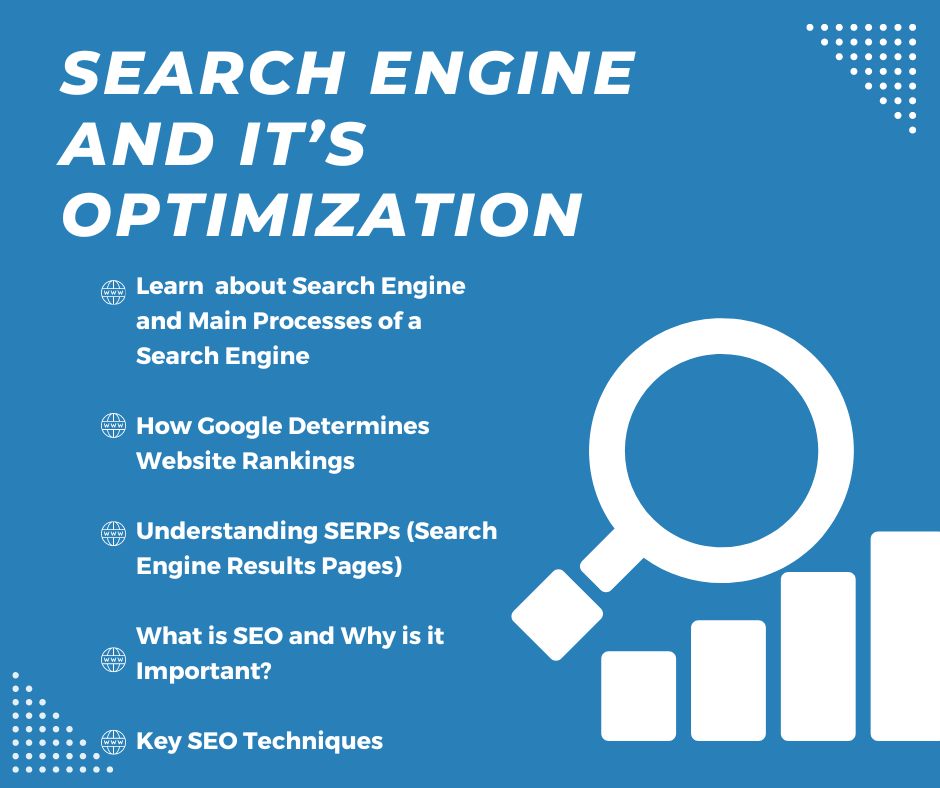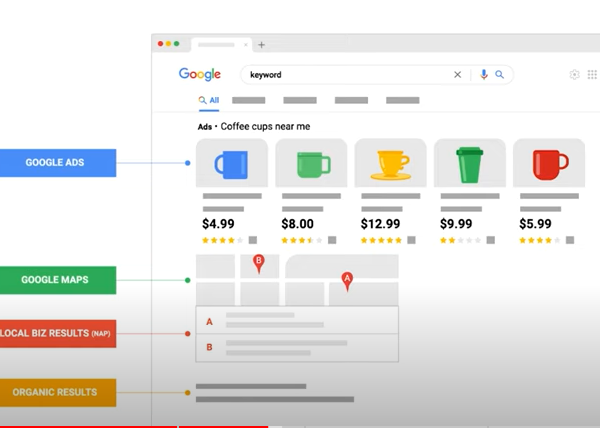
SEO Essentials: 10 Tips to write SEO friendly blog post that ranks in 2024
In today's digital age, having an online presence is more crucial than ever. Whether you're a housewife looking to start a blog, an entrepreneur building a business, or simply someone curious about how search engines work, understanding SEO (Search Engine Optimization) is vital. This guide will walk you through the essentials of SEO and how search engines function.
The first step in understanding how search engines work is crawling. This process involves discovering new or updated web pages. Google's automated programs, known as crawlers or spiders, explore the internet to find these pages.
Crawlers and Page URLs
Crawlers follow links from pages they already know about. When they find a new page, they add its URL (the web address) to a big list for review. For instance, if you create a new webpage, a crawler will find it by following a link from another page on your site or from another website.
Indexing : Storing Web Pages in an Index
Once a page is crawled, it's stored in an index. Think of this index like the one at the back of a book, but online. It helps Google keep track of all the content on the internet, including text, photos, and videos.
What Google Indexes
Google can index almost anything on a page, as long as the website owner allows it. This is why it's crucial to make your website's content accessible and easily indexable.
Serving : Delivering Search Results
After indexing, the next step is serving. This is where Google's search algorithm comes into play. An algorithm is a set of instructions that helps sort through billions of web pages to deliver the most relevant content for your search.
How Algorithms Work
Algorithms consider various factors, including the content on a website and information from other sites. Factors such as location and language can also influence the results.
When you type a query into Google, the search algorithm tries to understand your intent. This helps it return the most relevant results. As a marketer, knowing your potential customer's intent is crucial for creating content that meets their needs.
Relevance of Web Pages : Matching Content with Queries
Google's algorithm determines the relevance of content based on keywords and phrases. If your webpage contains the same keywords as the search query, it's considered relevant. Different types of content, like videos or articles, may be more appropriate depending on the search.
Quality of Content : Evaluating Content Quality
Google assesses the quality of content using various factors. High-quality, valuable content tends to rank better. This isn't just about technical elements but capturing the bigger picture of what makes content useful and engaging.
Usability of Web Pages : Enhancing User Experience
If two pages have the same content, the one with a better user experience will likely perform better. Factors like mobile-friendliness and page load speed are crucial. Google calls this the page experience ranking factor.
Searcher's Context and Setting : Personalized Search Results
Google uses information like location, past search history, and settings to deliver personalized results. For example, if you search for "football" in Chicago, you'll likely see results for American football, whereas in London, you'd see soccer results.
 SERPs include various features such as organic search results, paid Google Ads, Featured Snippets, Knowledge Graphs, and video results. Each component serves a different purpose in delivering comprehensive search results.
SERPs include various features such as organic search results, paid Google Ads, Featured Snippets, Knowledge Graphs, and video results. Each component serves a different purpose in delivering comprehensive search results.
Featured Snippets and Rich Results
Featured Snippets appear at the top of the SERP in a box, drawing attention to specific content. Rich results add extra visuals like stars in product reviews, enhancing the visibility and appeal of the search results.
Images and Videos : Visual Search Results
Google sometimes includes rows of images or videos in the SERP when visual information is particularly relevant. This can help you quickly find what you're looking for, whether it's a product or a tutorial.
Local Results and Google Ads
Local results often feature a map and a list of businesses relevant to the searcher's location. Google Ads, which are paid results, typically appear at the top or bottom of the SERP, offering another way to reach potential customers.
SEO is the process of optimizing your website to improve its visibility on search engines. This can help attract more relevant traffic to your site, making it easier for potential customers to find your products or services.
Small Changes, Big Impact
SEO often involves making small modifications to your website. These changes might seem minor individually, but together they can significantly impact your site's performance in search results. For example, improving your site's user experience can enhance its ranking.
On-page SEO involves optimizing elements on your website, such as content, internal linking, meta data, images, and URL structure. These optimizations can improve your rankings and attract more relevant traffic.
Off-Page SEO : Building External Authority
Off-page SEO focuses on factors outside your website, like building high-quality backlinks and promoting your site on social media. These activities can enhance your site's authority and visibility.
Technical SEO : Improving Site Performance
Technical SEO involves making changes to help search engines crawl and index your site more easily. This includes optimizing site load time, ensuring mobile-friendliness, and improving site structure.
White Hat : Ethical SEO Practices
White Hat SEO follows search engine guidelines and focuses on providing value to users, such as using descriptive meta-tags and creating quality content.
Black Hat SEO
Black Hat SEO, on the other hand, involves unethical practices like keyword stuffing and paid link-building, which can lead to penalties.
Share your experiences and ask questions in the comments section. Let's embark on this SEO journey together!
What is a Search Engine?
A search engine is a powerful tool that helps you locate information on the internet based on a search query. Imagine it as a vast library with an intelligent librarian who knows where everything is stored. You ask a question, and the search engine provides you with the most relevant answers.The Main Processes of a Search Engine
Crawling : Finding New or Updated PagesThe first step in understanding how search engines work is crawling. This process involves discovering new or updated web pages. Google's automated programs, known as crawlers or spiders, explore the internet to find these pages.
Crawlers and Page URLs
Crawlers follow links from pages they already know about. When they find a new page, they add its URL (the web address) to a big list for review. For instance, if you create a new webpage, a crawler will find it by following a link from another page on your site or from another website.
Indexing : Storing Web Pages in an Index
Once a page is crawled, it's stored in an index. Think of this index like the one at the back of a book, but online. It helps Google keep track of all the content on the internet, including text, photos, and videos.
What Google Indexes
Google can index almost anything on a page, as long as the website owner allows it. This is why it's crucial to make your website's content accessible and easily indexable.
Serving : Delivering Search Results
After indexing, the next step is serving. This is where Google's search algorithm comes into play. An algorithm is a set of instructions that helps sort through billions of web pages to deliver the most relevant content for your search.
How Algorithms Work
Algorithms consider various factors, including the content on a website and information from other sites. Factors such as location and language can also influence the results.
How Google Determines Website Rankings
Meaning of the Query : Understanding Search IntentWhen you type a query into Google, the search algorithm tries to understand your intent. This helps it return the most relevant results. As a marketer, knowing your potential customer's intent is crucial for creating content that meets their needs.
Relevance of Web Pages : Matching Content with Queries
Google's algorithm determines the relevance of content based on keywords and phrases. If your webpage contains the same keywords as the search query, it's considered relevant. Different types of content, like videos or articles, may be more appropriate depending on the search.
Quality of Content : Evaluating Content Quality
Google assesses the quality of content using various factors. High-quality, valuable content tends to rank better. This isn't just about technical elements but capturing the bigger picture of what makes content useful and engaging.
Usability of Web Pages : Enhancing User Experience
If two pages have the same content, the one with a better user experience will likely perform better. Factors like mobile-friendliness and page load speed are crucial. Google calls this the page experience ranking factor.
Searcher's Context and Setting : Personalized Search Results
Google uses information like location, past search history, and settings to deliver personalized results. For example, if you search for "football" in Chicago, you'll likely see results for American football, whereas in London, you'd see soccer results.
Understanding SERPs (Search Engine Results Pages)
 SERPs include various features such as organic search results, paid Google Ads, Featured Snippets, Knowledge Graphs, and video results. Each component serves a different purpose in delivering comprehensive search results.
SERPs include various features such as organic search results, paid Google Ads, Featured Snippets, Knowledge Graphs, and video results. Each component serves a different purpose in delivering comprehensive search results.
Featured Snippets and Rich Results
Featured Snippets appear at the top of the SERP in a box, drawing attention to specific content. Rich results add extra visuals like stars in product reviews, enhancing the visibility and appeal of the search results.
Images and Videos : Visual Search Results
Google sometimes includes rows of images or videos in the SERP when visual information is particularly relevant. This can help you quickly find what you're looking for, whether it's a product or a tutorial.
Local Results and Google Ads
Local results often feature a map and a list of businesses relevant to the searcher's location. Google Ads, which are paid results, typically appear at the top or bottom of the SERP, offering another way to reach potential customers.
What is SEO and Why is it Important?
Increasing Visibility and TrafficSEO is the process of optimizing your website to improve its visibility on search engines. This can help attract more relevant traffic to your site, making it easier for potential customers to find your products or services.
Small Changes, Big Impact
SEO often involves making small modifications to your website. These changes might seem minor individually, but together they can significantly impact your site's performance in search results. For example, improving your site's user experience can enhance its ranking.
Key SEO Techniques
On-Page SEO : Optimizing Website ElementsOn-page SEO involves optimizing elements on your website, such as content, internal linking, meta data, images, and URL structure. These optimizations can improve your rankings and attract more relevant traffic.
Off-Page SEO : Building External Authority
Off-page SEO focuses on factors outside your website, like building high-quality backlinks and promoting your site on social media. These activities can enhance your site's authority and visibility.
Technical SEO : Improving Site Performance
Technical SEO involves making changes to help search engines crawl and index your site more easily. This includes optimizing site load time, ensuring mobile-friendliness, and improving site structure.
White Hat : Ethical SEO Practices
White Hat SEO follows search engine guidelines and focuses on providing value to users, such as using descriptive meta-tags and creating quality content.
Black Hat SEO
Black Hat SEO, on the other hand, involves unethical practices like keyword stuffing and paid link-building, which can lead to penalties.
Tools and Resources for SEO
Google Search Console is a valuable tool for monitoring and maintaining your site's presence in search results. There are also other tools available to help with keyword research, analytics, and performance tracking.Conclusion
Understanding SEO and how search engines work is essential for improving your online presence. By applying the techniques discussed in this guide, you can enhance your website's visibility and attract more traffic. Remember, even small changes can make a big difference.Share your experiences and ask questions in the comments section. Let's embark on this SEO journey together!
All Categories
- environment (6)
- Uncategorized (12)
Recent Posts
Urvian-K1 Comment
Best Online Jobs of 2024: A Beginner’s Guide
Urvian-K2 Comments
Top 7 Tried and Tested Hacks for Home Office Improvements
Urvian-K1 Comment
Top 10 Work From Home Business Ideas in 2024
Tags
2024 business trends
AI-driven SEO
AI and SEO
AI in digital marketing
authenticity in marketing
best home business ideas
Bhutan oxygen production
Bhutan sustainable development
brand engagement
BuildingMaintenance
Carbon sink Bhutan
cities with low pollution
content marketing
customer reviews
digital business ideas
digital marketing strategy
DrainageSystemMaintenance
Eastern Himalayas biodiversity
eco-friendly cities
Eco-tourism Bhutan
eliminate junk mail
entrepreneurship 2024
freelance jobs 2024
future of SEO
green cities
Growth in Economy
Innovative solutions
mailbox spam tips
Migration solution
mompreneur guide
on-page SEO
online careers 2024
RoofCollapsePrevention
Rural Tourism
SEO best practices
social proof
spam management for moms
stop mailbox spam
sustainable
sustainable development
top online jobs
UGC benefits
urban planning
user-generated content
work from home jobs
A HAVEN FOR BIG RISKS & BOLD IDEAS
URVI work is made possible through the support of a community of mentors, advisors, partners
7900900888
info@urvi.org.in



